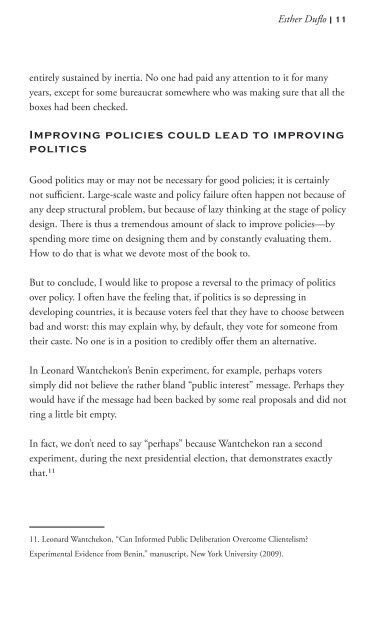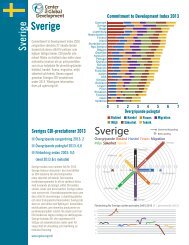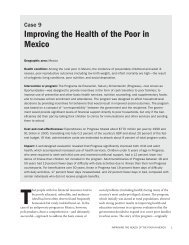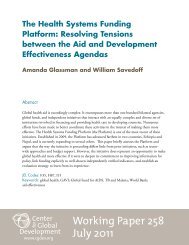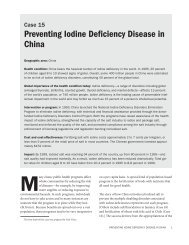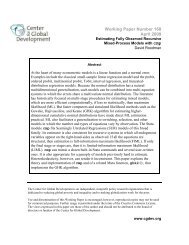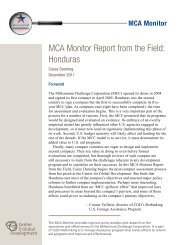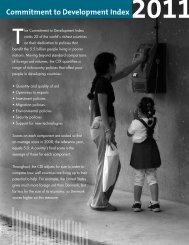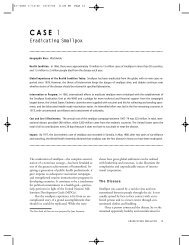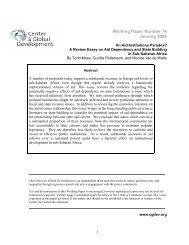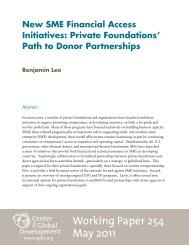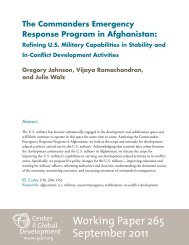Esther Duflo - Center for Global Development
Esther Duflo - Center for Global Development
Esther Duflo - Center for Global Development
Create successful ePaper yourself
Turn your PDF publications into a flip-book with our unique Google optimized e-Paper software.
<strong>Esther</strong> <strong>Duflo</strong> | 11<br />
entirely sustained by inertia. No one had paid any attention to it <strong>for</strong> many<br />
years, except <strong>for</strong> some bureaucrat somewhere who was making sure that all the<br />
boxes had been checked.<br />
Improving policies could lead to improving<br />
politics<br />
Good politics may or may not be necessary <strong>for</strong> good policies; it is certainly<br />
not sufficient. Large-scale waste and policy failure often happen not because of<br />
any deep structural problem, but because of lazy thinking at the stage of policy<br />
design. There is thus a tremendous amount of slack to improve policies—by<br />
spending more time on designing them and by constantly evaluating them.<br />
How to do that is what we devote most of the book to.<br />
But to conclude, I would like to propose a reversal to the primacy of politics<br />
over policy. I often have the feeling that, if politics is so depressing in<br />
developing countries, it is because voters feel that they have to choose between<br />
bad and worst: this may explain why, by default, they vote <strong>for</strong> someone from<br />
their caste. No one is in a position to credibly offer them an alternative.<br />
In Leonard Wantchekon’s Benin experiment, <strong>for</strong> example, perhaps voters<br />
simply did not believe the rather bland “public interest” message. Perhaps they<br />
would have if the message had been backed by some real proposals and did not<br />
ring a little bit empty.<br />
In fact, we don’t need to say “perhaps” because Wantchekon ran a second<br />
experiment, during the next presidential election, that demonstrates exactly<br />
that.11<br />
11. Leonard Wantchekon, “Can In<strong>for</strong>med Public Deliberation Overcome Clientelism?<br />
Experimental Evidence from Benin,” manuscript, New York University (2009).


